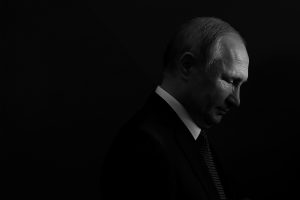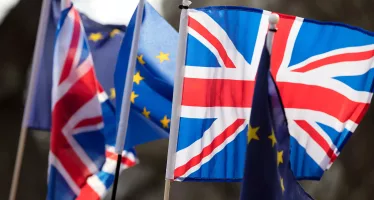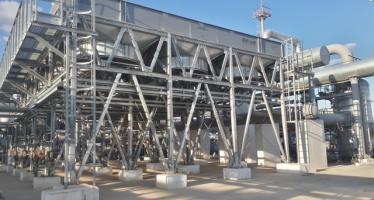Unfriending Europe: President Putin Turns the Screw

President: Vladimir Putin
This is perhaps not the time to tell the Germans ‘told you so’ as the nation deals with the fallout of the now disproved premises of its unfortunate energy policy. Not only has Germany’s dependency on Russian natural gas turned out to be a geopolitical miscalculation of almost epic proportions, its much touted and hastily executed Energiewende compounds present-day challenges to the point of intractability.
Earlier this week, the operators of Germany’s three remaining nuclear power plants summarily dismissed any talk of keeping their facilities operational beyond the federally mandated shutdown on 31 December 2022 as ‘impractical nonsense’. The about-to-be mothballed plants not only need to replace their almost-spent uranium fuel rods but would also require recertification.
In the Bundestag, Chancellor Olaf Scholz scorned calls to restart the three plants shuttered last year, and keep the three scheduled for closedown open, as “simplistic and unrealistic.”
The government cites a host of technical reasons for its decision to press ahead with the shutdown of the remaining reactors. However, energy analysts suspect that political posturing is present as well. Most pundits agree that the Greens, part of the ruling coalition, are loath to admit that they were wrong all along about nuclear power.
Such an admission would be tantamount to political suicide. Moreover, Russia’s aggression has already forced the Greens to ditch their cherished pacifist agenda. There are only so many political crown jewels to pawn before the party loses its raison d’être altogether.
Uranium Top Up
Currently, the installed capacity of nuclear power generation amounts to just 4.3 gigawatts – or 30 terawatt hours annually – equivalent to about 5% of Germany’s total electric power output.
During the debate in the Bundestag, Chancellor Scholz reminded his opponents that the provision of new fuel rod assemblies would take 12 to 15 months: “A nuclear power plant is not like a car that you can just top up at any petrol station.”
The remaining reactor operators are also unwilling to carry out the massive investments in safety technology likely to be triggered by a recertification process. Both EnBW (operator of Neckarwestheim 2) and Eon (operator of Isar 2) are decidedly unwilling to assume the risks and costs associated with keeping their reactors online – even in the case of an acute energy crunch. Only if the government is willing to shoulder that burden and offer iron-clad guarantees to the operators – something most unlikely to happen – could the plants be spared closure.
And then President Putin came knocking. Russia’s Gazprom suspended deliveries to Poland and Bulgaria, causing European gas prices to jump by 20% to €117 per megawatt hour. In tandem, the euro touched a five-year low against the US dollar. The Russian gas giant said it shut off supplies due to non-payment in roubles.
EU Commission President Ursula von der Leyen promptly accused Russia of using gas as an “instrument of blackmail’ and called the company’s action “unjustified and unacceptable.” Ms Von der Leyen did, however, assure that preparations had been made to deal with the scenario.
Unfriended Countries
In March, President Vladimir Putin ordered Gazprom to charge its deliveries to ‘unfriendly countries’ in roubles. European importers, all safe for Hungary deemed unfriendly, refused to comply with the Kremlin’s instruction, arguing that the diktat violates contractual terms and constitutes a violation of the sanctions’ regime. In a statement, Gazprom warned Poland and Bulgaria, both transit states, that unauthorized withdrawals of gas from pipelines would result in a reduction of flow rates to downstream buyers.
With the interruption of gas deliveries to Poland and Bulgaria considered a shot across the EU’s bow, the next Russian salvo may well hit the union’s superstructure before long. Disaster planning is going full steam ahead with ministries in all European capitals working feverishly to tap into alternative supplies and devise ways to keep the lights on and economies chugging in case Russia decides to cut off all energy supplies.
The war in Ukraine has become the world’s most disruptive event by far and, of course, follows in the wake of the Corona Pandemic, another major disruptor from which most economies have barely recovered. The IMF has reduced, yet again, its global growth forecast by 1.2 percentage points for emerging and developing markets, and 1.3 percentage points for high-income economies. Inflation is also far from tamed and expected to average 5.7% in the West and 8.7% elsewhere.
Meanwhile, the world is being sliced into distinct and opposing spheres with the global south increasingly marginalised, rendered irrelevant, and nearly invisible. The United Nations seems utterly powerless to put a stop to the horrors inflicted upon the Ukrainian people with its secretary general visiting the Kremlin to absorb a rambling monologue of President Putin whilst nodding his head in feigned understanding at appropriate intervals – a grand, yet depressing, spectacle of diplomatic impotence.
Big Guns for Ukraine
Small wonder that – given the absence of diplomatic moves – even Germany was obliged to let go of its pretence and greenlight the expedited delivery of heavy weaponry to the embattled Ukrainians. A first batch of 50 twin barrelled Gepard (‘Cheetah’) anti-aircraft systems, decommissioned in the 2010s, has been taken out of storage and returned to its manufacturer for refurbishment before dispatch to the battlefields of Ukraine.
Germany has also promised to help train Ukrainian soldiers in the use of the massive PzH2000 155mm self-propelled howitzers taken out of storage by the Dutch Army for delivery to Ukraine. Finally, the German government has agreed to pay for any military hardware from domestic manufacturers ordered by Ukraine.
The feeling in Europe is that developments are now on a fast track to destination unknown. Almost every day, yesterday’s impossibilities are being realized. The unthinkable is becoming reality, the unimaginable has become tangible.
Today, for example, Brussels has been discussing ways to confiscate Russia’s frozen dollar reserves and earmark the resulting €300 billion or so for the rebuilding of Ukraine. Lawyers will undoubtedly have a field day with this as well.
You may have an interest in also reading…
One Man’s View of the Mountain: UK Urgently Needs to Rejoin EU to Create Economic Security
Both parties are promising growth, but which policies are most likely to generate it? Growth is essential for continually improving
Doors Closing: Mind the EU Gender Pay Gap
Transparency directive introduced to ensure fair pay between the sexes Women in the EU continue to be paid less on
Uzbekistan ‘s Enter Engineering announces Covid years project updates and operations guidance
According to Ulugbek Usmanov, General Director at Enter Engineering: “Enter Engineering is involved in a variety of projects central to


















































































